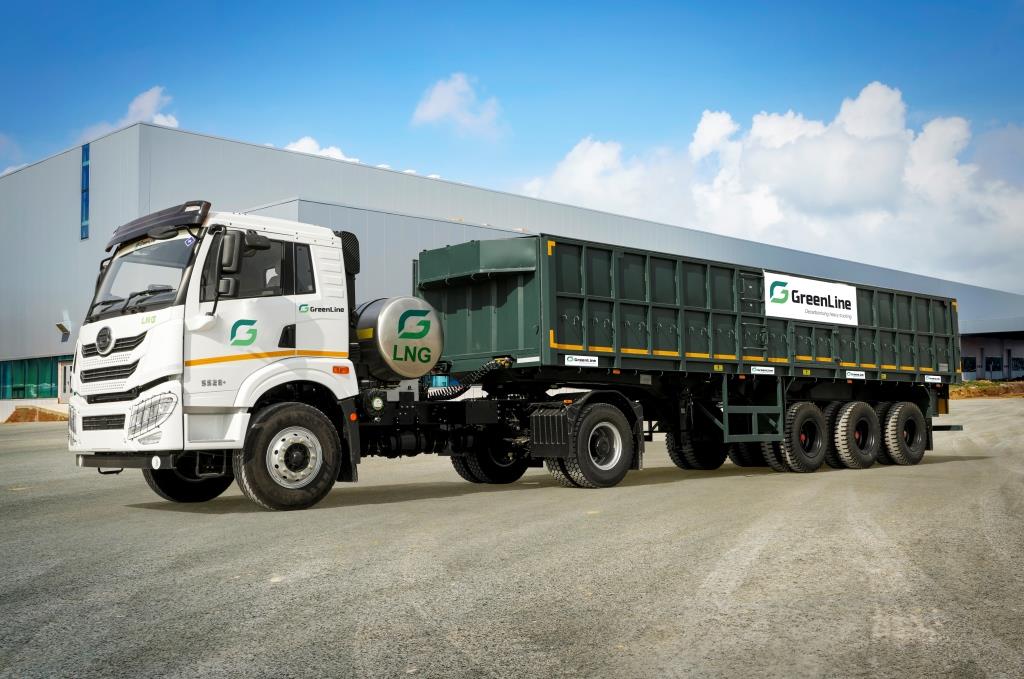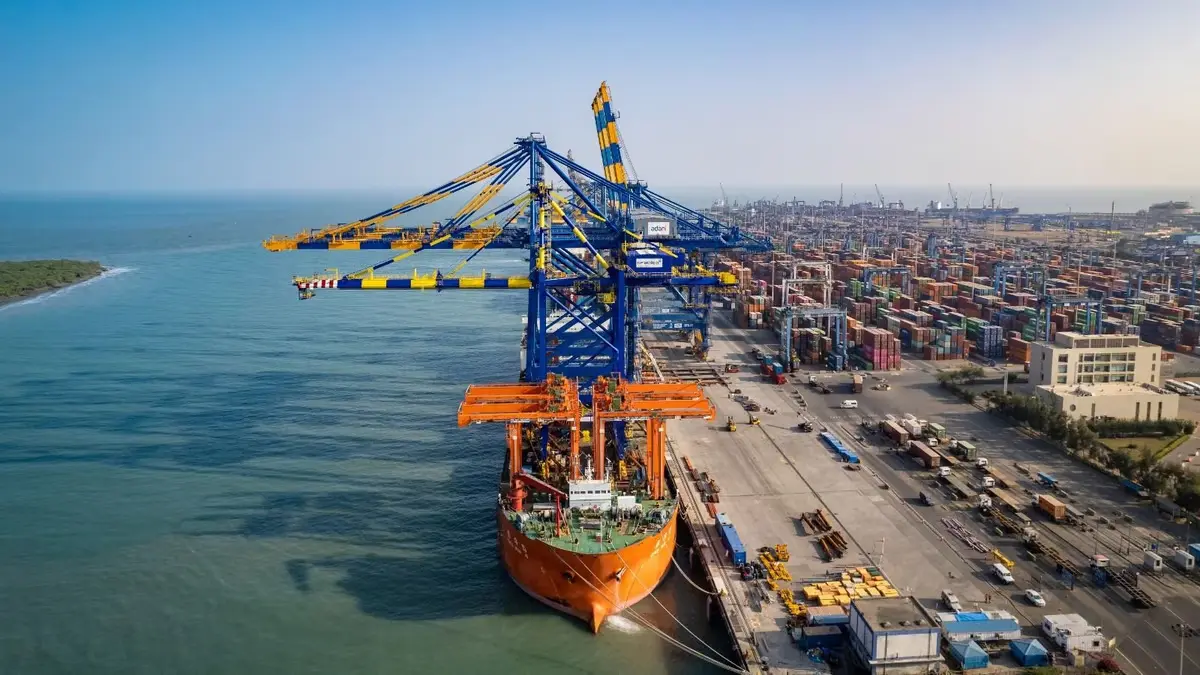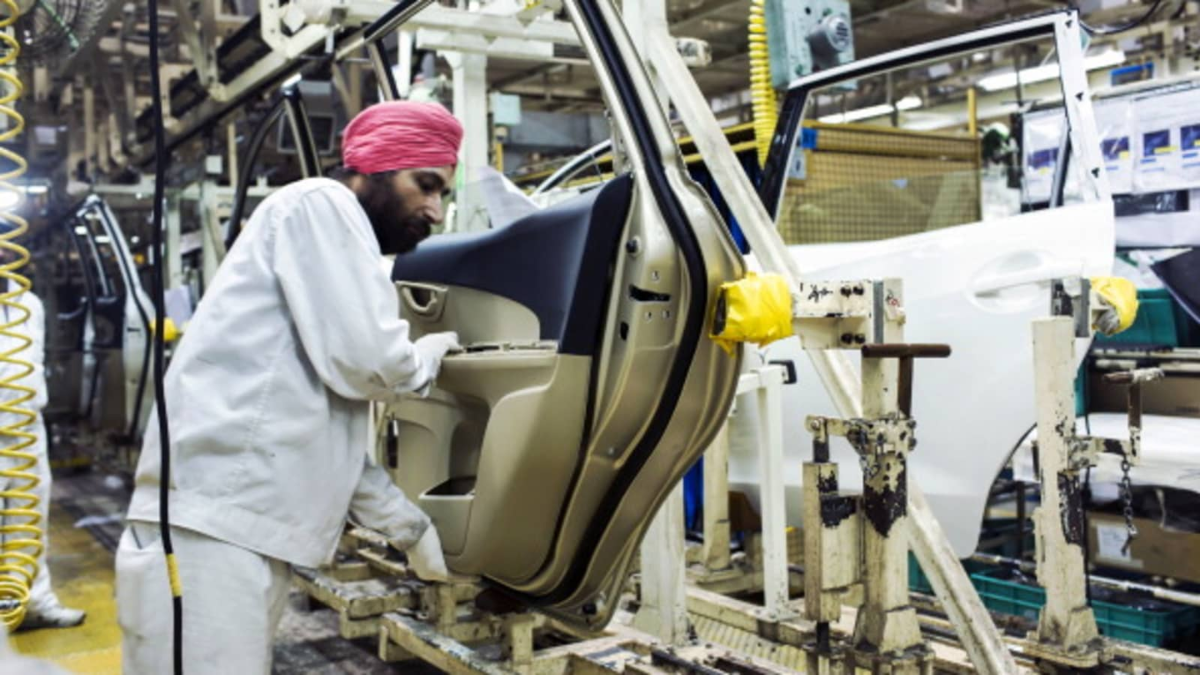CEO Perspective
Transport Sector Key To India Becoming Net Zero: Anand Mimani, CEO of GreenLine Mobility Solutions Ltd

Anand Mimani
CEO, GreenLine Mobility Solutions Ltd

Why is it important for India to focus on its transportation sector in its efforts to become net zero by 2070?
India's transportation sector plays a critical role in achieving net-zero emissions by 2070, as it significantly contributes to the country’s carbon footprint. Road logistics, a key component of this sector, relies heavily on diesel, which is a major source of greenhouse gas emissions. Transitioning to cleaner alternatives like LNG for long-haul transport and EVs for short-haul operations can substantially reduce scope-3 emissions (Greenhouse gas emissions that come from sources beyond the control of a company). This shift not only supports India’s climate goals but also strengthens energy security, promotes sustainable economic growth, and improves air quality and public health.
How is the Essar group approaching this challenge?
Essar is actively addressing the challenge of decarbonizing India’s road logistics sector by building a green mobility ecosystem. With 4 million trucks currently on Indian roads—projected to double in the near future—there is an urgent need for cleaner transportation solutions. Heavy-duty trucks, which dominate this sector, are significant contributors to India’s carbon emissions. To tackle this, Essar is focusing on liquefied natural gas (LNG) as a cleaner alternative to diesel, offering substantial reductions in emissions and making it an ideal choice for heavy-duty vehicles. Additionally, Essar is developing electric vehicles (EVs) for short-haul logistics, further complementing its efforts to reduce emissions.
To drive this transformation, Essar is investing in LNG infrastructure and technology, creating a low-emission ecosystem for road transport. This ecosystem includes Blue Energy Motors (BEM) and GreenLine Mobility Solutions Limited, which are working together to develop an integrated LNG network. Ultra Gas & Energy, a subsidiary of GreenLine, is building LNG fuelling stations across India, enabling the adoption of cleaner fuels and advancing sustainable transportation solutions.
What are the key elements of Essar’s green mobility initiative in India’s transportation sector?
The key elements of Essar’s Green Mobility Initiative in India’s transportation sector focus on supporting GreenLine Mobility Solutions in decarbonizing long-haul road logistics. GreenLine is deploying LNG-powered trucks that can carry a 40-tonne payload and travel up to 1,200 kilometres and 2,400 kilometres on one full tank. These trucks provide a sustainable alternative for long-haul transport. Additionally, each truck is equipped with Level-1 ADAS cameras that monitor driver behaviour, enhancing safety and operational efficiency. This integrated approach supports the broader goal of transforming India’s road logistics sector into a more sustainable, low-emission ecosystem.
How does LNG contribute to reducing emissions in India’s road logistics industry compared to diesel?
LNG is a cleaner alternative to diesel, offering substantial reductions in toxic emissions. Compared to traditional diesel trucks, LNG trucks reduce CO2 emissions by up to 30%, completely eliminate SOx emissions, and significantly cut NOx emissions by up to 59%. They also lower particulate matter by up to 91% and reduce CO emissions by 70%. These reductions not only contribute to better air quality but also align with India’s goals to reduce greenhouse gas emissions and improve public health outcomes. As a transition fuel, LNG plays a crucial role in decarbonizing the heavy-duty vehicle segment, helping India decrease its reliance on more polluting fuels.
What roles do Blue Energy Motors (BEM), GreenLine Mobility Solutions, and Ultra Gas & Energy (UGEL) play in Essar's approach to addressing the sustainable transportation ecosystem?
BEM manufactures LNG-powered trucks, India’s first OEM for LNG-powered heavy-duty vehicles in the next-generation segment. These trucks are equipped with modern technology, providing a sustainable alternative to traditional diesel trucks and playing a crucial role in transforming India’s logistics sector.
GreenLine operates the fleet of LNG-powered trucks and is expanding its reach to offer more sustainable transport solutions. Ultra Gas & Energy Limited, a subsidiary of GreenLine, focuses on developing and expanding a nationwide network of LNG fuelling stations. GreenLine through its subsidiary Ultra Gas & Energy Limited ensure reliable fuel access and support the widespread adoption of LNG, driving the transformation towards a sustainable and low-emission road logistics ecosystem.
How can government policy accelerate the adoption of LNG and EV technology in India’s trucking sector?
To support the adoption of LNG and EVs in India’s trucking sector, the government could consider facilitating easier access to finance for businesses transitioning to alternative fuel vehicles. Encouraging the industry to aim for a certain percentage, such as 10%, of their fleet running on alternative fuels by FY 2026 could help drive demand for LNG and EVs.
Additionally, implementing a scrapping policy for vehicles over 15 years old might incentivize the replacement of older vehicles with cleaner alternatives. Offering toll exemptions for the first three years for companies adopting LNG and EV vehicles could also help reduce initial costs and promote the adoption of sustainable transport solutions.
These initiatives would help create a supportive environment for the widespread adoption of alternative fuels, contributing to a sustainable and low-emission road transport ecosystem in India.
What are the future plans for GreenLine Mobility?
GreenLine Mobility is well-positioned to meet the growing demand for sustainable logistics solutions as businesses increasingly prioritize Environmental, Social, and Governance (ESG) initiatives. Currently, GreenLine operates over 500 LNG-powered trucks and plans to expand its fleet to 1,000, by adding LNG and EV trucks by March 2025. In addition to this, we are exploring the integration of electric vehicles (EVs) for short-haul logistics, further complementing our LNG fleet and broadening our range of eco-friendly transport options. GreenLine currently serves a broad spectrum of industries, including FMCG, Ecommerce, Automotive, Cement, Steel, Metals and Mining, Express Cargo, Oil and Gas, and Chemicals. Looking ahead, we aim to further diversify its operations by expanding into additional sectors. As we continue to innovate and grow, our goal is to set new industry standards for sustainability in logistics, reduce emissions, and contribute to India’s transition to a greener future.



